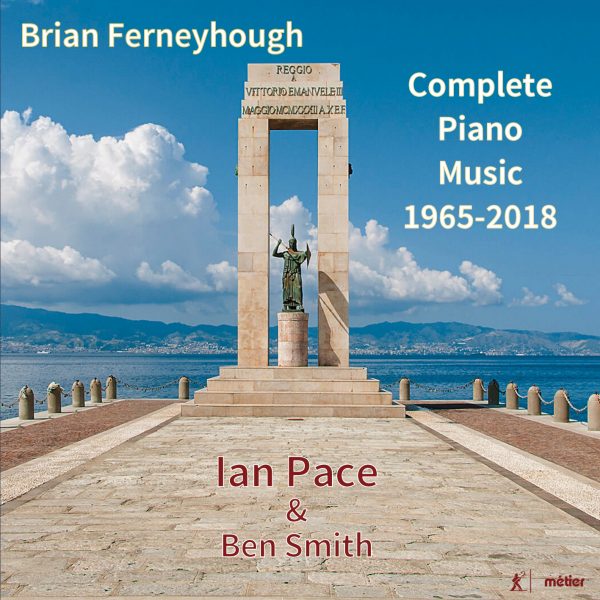Gramophone
In his thought-provoking booklet essay, Ian Pace considers the notational complexity of Brian Ferneyhough’s scores as being less a directive that should be achieved at all costs than an ideal which, in its striving towards, defines the specific interpretation. It certainly underpins his performances of what is the most inclusive edition of this composer’s piano music so far.
The bulk of this traversal was recorded in 2003 and completed 15 years later. In the meantime Nicolas Hodges’s set appeared, its often radical differences in approach further confirming the interpretative potential of this music. As a rule, Hodges is defter and more mercurial whereas Pace is starker and more visceral, if not neglecting the composer’s recalcitrant humour. Such is evident in the formative pieces of 1965-67: the capricious terseness of Invention, the poised distillation of ideas in the six Epigrams, what might be called the ‘aggressive playfulness’ of the Sonata for two pianos (Ben Smith joining Pace for this exhilarating account) then stark contrasts across the Three Pieces whose dialectical outcome is the most tenuous of syntheses.
Pace potently underlines the coruscating virtuosity and sheer gestural force of Lemma-Icon-Epigram (1981), still the most lucid means into Ferneyhough’s ‘transcendental’ period, and though Hodges renders the interplay of music and text in Opus contra naturam (2000) with greater aplomb (which he also performs as the fourth ‘scene’ of the Walter Benjamin-centred drama Shadowtime – NMC, 8/06), Pace invests the triptych’s central section with propulsive impetus. In Quirl (2013), Hodges predicates variety of detail against the expressive tautness of Pace – who brings deadpan whimsy to the pithy feline tribute El Rey de Calabria (2019). Recorded with unfailing clarity and immediacy, this project is demonstrably a labour of love on Pace’s part – a bracing traversal of music as engrossing as it is defiantly uncompromising.
@divineartrecordingsgroup
A First Inversion Company
Registered Office:
176-178 Pontefract Road, Cudworth, Barnsley S72 8BE
+44 1226 596703
Fort Worth, TX 76110
+1.682.233.4978












